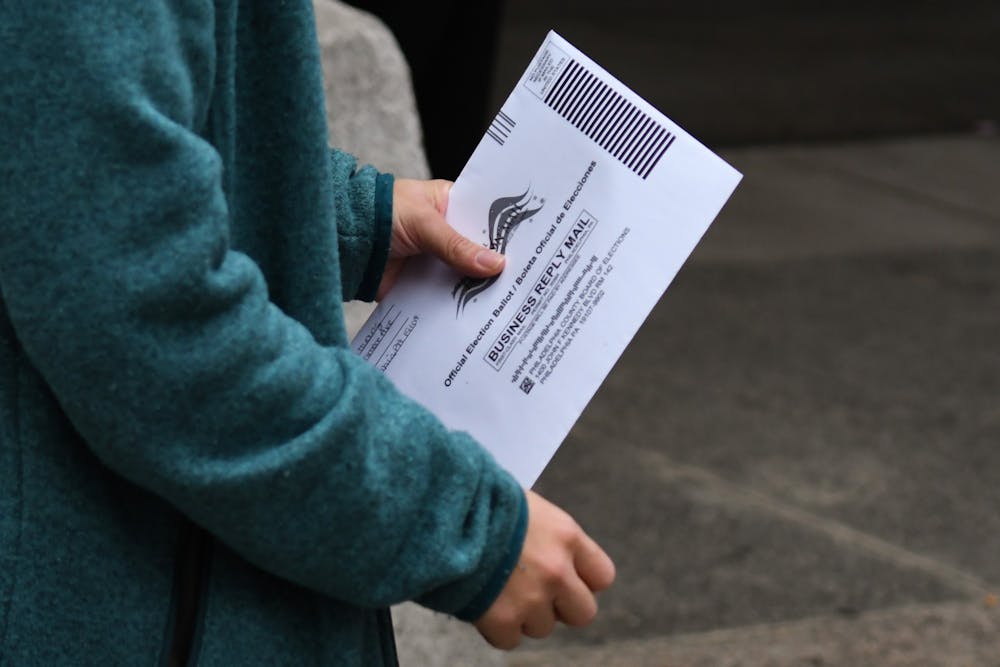Following a tumultuous presidential election that saw a notable shift to mail-in voting and many unsuccessful legal challenges to the results, Penn is offering a new course in the spring to examine the voting controversies that marked the race.
The course, titled PSCI 498: Election Law and the 2020 Election, will be taught by political science professor Marc Meredith. Students will analyze how laws governing the administration of United States elections guided thinking about changes to election administration during the COVID-19 pandemic. It will cover topics including voting rights, mail-in ballots, voter registration, felon disenfranchisement, and redistricting.
Students will begin by studying the Constitution, voting laws, and court cases to build a foundation in election administration. They will then examine how these laws guided election administrators and courts in the 2020 primaries and presidential election when the country saw an unprecedented increase in mail-in voting.
Although there was a high demand for mail-in ballots in 2020, concerns about COVID-19 made certain state requirements for mail-in voting more restrictive than in non-pandemic years, Meredith said, citing some states’ requirement for voters to get their ballots notarized in person.
After serving as an expert witness in several legal cases pertaining to mail-in balloting law during the election cycle, Meredith decided to teach the new course with a focus on the controversies of the election. Meredith, who worked to expand access to mail-in voting in the cases, said he can offer students a firsthand account of what happened.
The new course will count towards the Survey Research and Data Analytics minor of the Penn Program on Opinion Research and Election Studies, according to PORES Assistant Director Sandy Vogel.
The study of election law in PSCI 498 connects to the focus of PORES, a research program training students in election research, data analytics, and public policy, PORES Director of Operations Andrew Arenge said.
The quantitative side of any data analysis goes hand in hand with a substantive, qualitative understanding of the processes being analyzed, Arenge added.
“What’s exciting about Marc’s class is that he’s going to be able to provide that substantive knowledge for anybody that’s interested in studying this stuff,” he said.
Arenge added that the course is particularly relevant due to baseless attempts from President Donald Trump to undermine the results of the election. Trump has made continuous allegations of voter fraud and gone to court in five states to challenge the counting of certain ballots or the certification of the vote.
“There’s just a huge gap between what the White House is asserting in press conferences and what it’s asserting in its legal cases," Meredith said. "The legal cases — the ones I’m aware of — have made broad allegations of fraud but haven’t really been able to substantiate any specifics about it, and in some of the arguments, they’ve even admitted they really don’t have evidence of any widespread fraud or even really any evidence of limited fraud.”
Election officials in every state have said there is no evidence of voter fraud or other irregularities that affected the election's outcome.
“We live in a world where there is some strategy to try and sow doubt in the election administration process that exists in the country, and I think it becomes really important to train students in understanding which ones of those claims are actually legitimate and which ones are hyperbolic,” Arenge said.
Meredith also expressed disappointment with regard to the continued baseless allegations from the president.
“You feel like a democracy is being undone a little every time you get a new taste or hear the White House speak, and that’s frustrating to watch as someone who likes democracy,” Meredith said.









